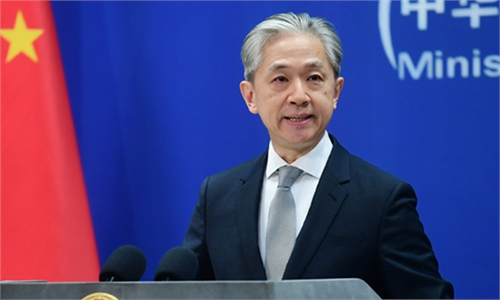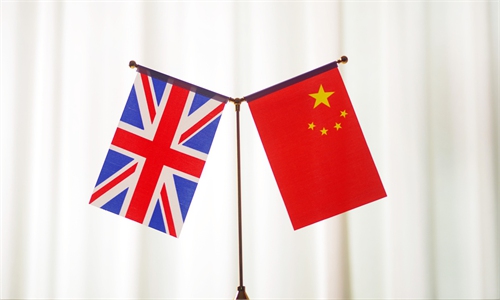China-UK relations in the process of normalizing, providing multinationals with assurance: chamber head

China UK Photo:VCG
Following the UK's former foreign secretary James Cleverly's visit to China in August, relations between China and the UK are in the process of normalizing, "a big factor" that will provide multinationals from both sides with assurance on their investments, a UK chamber representative said.
It is expected that UK companies will be increasing their investment in the world's second-largest economy in sectors such as healthcare, clean energy and artificial intelligence (AI), which align with the country's growth objectives.
"There's uncertainty, but I don't think we have the negativity of [past] China-US relations," Julian Fisher, chair of the British Chamber of Commerce in China, told the Global Times on Tuesday. Fisher noted that the uncertainty lies in the UK election next year. During the campaign, China may be portrayed negatively on geopolitical topics.
It is important to note that "whatever happens next year in UK politics doesn't necessarily reflect the deep relations between China and the UK," Fisher said.
With regard to how former UK prime minister David Cameron's appointment as foreign secretary could shape China-UK business relations, Fisher noted that it is a good thing that Cameron has rich experience in dealing with China.
"There's a very positive feeling about Cleverly's China approach. He was approaching things in a very mature way, and I hope that approach will continue with Cameron. From our perspective, what we want to see is [Cameron] visiting [China] as soon as possible. We know that has a really positive impact on the further normalization of bilateral relations," he noted.
Cameron, often described as the "architect of the golden era of UK-China relations," emphasized in a speech last month the need to engage with China while expressing support for the UK government's "realistic and hard-headed" China policy.
Relations between the two countries, or in the bigger picture geopolitical concerns, are a major factor that weighs on UK multinationals' operations in China, according to a survey titled "British Business in China: Sentiment Survey 2023-24" released by the chamber on Tuesday.
With such concerns being properly addressed following an easing in China-US relations, it is likely that more UK companies will set their eyes on the Chinese market amid the latter's stepped-up opening-up efforts, observers said. They noted that bilateral economic ties are complementary and offer plenty of room for further growth.
The sentiment survey shows that about 44 percent of UK companies expect to increase their investment in the Chinese mainland next year due to "greater alignment with China's strategic objectives for growth," and they see areas such as sustainability, AI and innovation as beacons of opportunity.
A number of UK companies have expanded their footprints in China this year. UK-based international bank Standard Chartered announced a further investment of $300 million in China by the end of 2024 to upgrade its capabilities in a variety of areas including wealth management, retail banking and sustainability and risk management.
In the first eight months of 2023, foreign direct investment from the UK to China was up an exceptional 133 percent in year-on-year terms, according to data released by China's Ministry of Commerce.
The survey also found that British companies are "cautiously optimistic" about their business in China. Almost two-thirds said that revenue for this year either increased or remained on par with last year, and 46 percent are positive about the 2024 prospects, compared with 31 percent when the survey was conducted in 2022.
While the chamber's survey showed that some UK businesses were concerned about the "Chinese slow economic recovery" and therefore adopted a "wait-and-see" strategy, industry observers noted that the country is embarking on a steady recovery and will continue to share its development dividends with all foreign players that are investing for the long term.
Another draw of the Chinese market is the greater demand for products and services, the survey showed, which has underscored the vibrancy of one of the world's largest consumer markets.
British businesses are positive about China's push to attract foreign investment, which has seen increased communication with businesses and trade bodies alongside a 24-point guideline to attract foreign investment issued in August.
The survey showed that 50 percent of UK businesses view the initiative as aiming at addressing their regulatory concerns.



